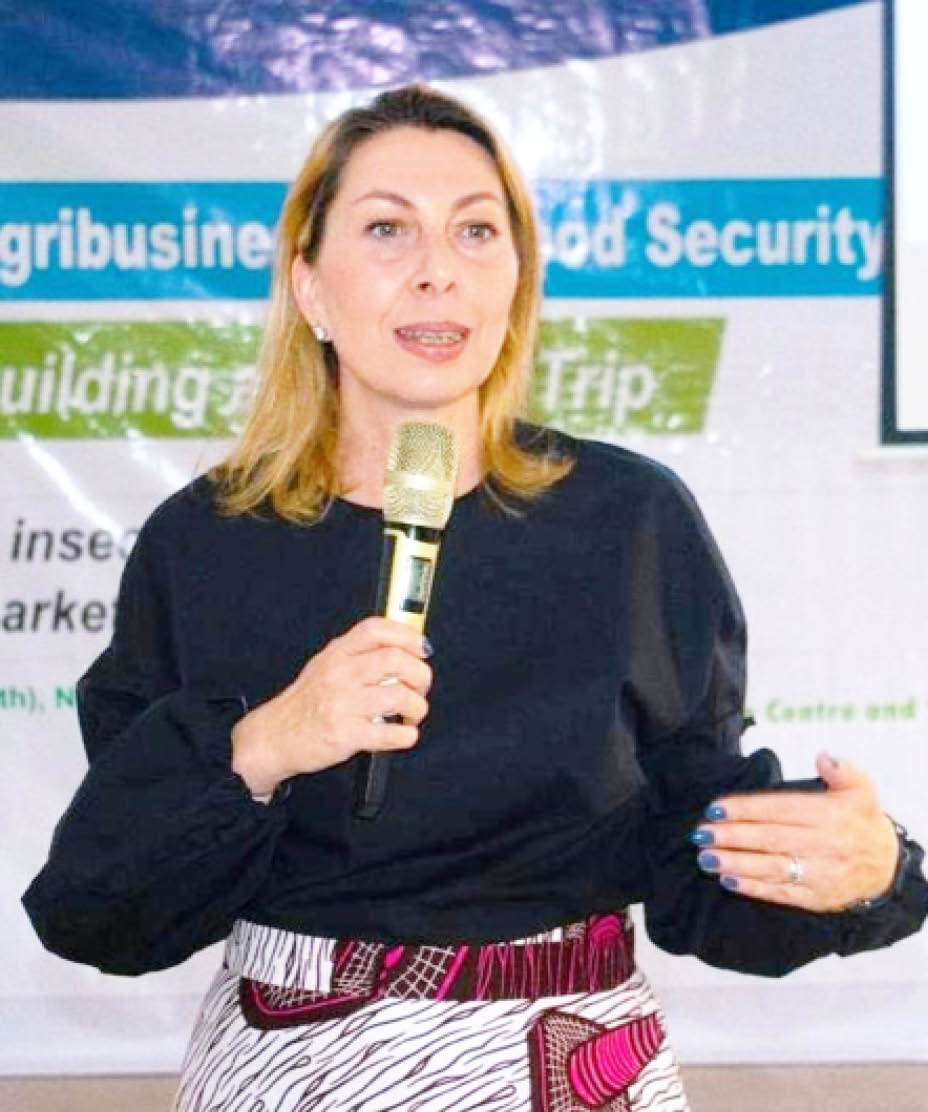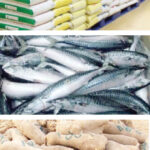The Chief of Party, Feed the Future Nigeria Rural Resilience Activity at the Mercy Corps, Ms Margarita Aswani, in this interview, advised that massive dry season farming and adaptable insurance would help prevent food crisis occasioned by last year’s flooding, as well as banditry.
A lot of farmers, especially the rural ones, are excluded from financial services. What is Mercy doing about this?
Yes, in the Northeast, 50 percent of rural population – whether farmers or livestock producers or micro enterprise owners – are indeed financially excluded. At the beginning of the activity, we began to work with several commercial banks in Nigeria. We have signed MOUs with them and we are actually currently deploying the Village Savings and Loans Associations (VSLA) methodology, while helping the people to save.
We are also working with commercial banks and microfinance institutions to make sure that we digitize the savings, bring the POS agents into the communities so that they can get BVN, to open bank accounts, and then access credits and loans.
So, Mercy Corps has financial inclusion approach which we deploy. We are focused on women, youth, men. We look at the different needs of the different participants that we have and try to deploy appropriate products.
Cash crisis: Grain marketers adopt new business model
The other thing we’ve done is we had an event on June 30 of 2022, where we invited commercial institutions, commercial banks, the Central Bank of Nigeria (CBN), insurance companies and participants, such as farmers, who talked about their experiences in trying to access appropriate products, while the banks told us the available products they had.
Now, we’re taking it to the next step. We want to see how the products can be most appropriately packaged for the rural poor, and the urban poor in the Northeast.
What is their capital base of the investment?
The savings groups have a very minimal amount. For example, if you take a N50,000 loan from a savings group, you have to pay back N53,500. So, it’s just a very small amount. Different financial institutions have different rates. And they do look at whether it is a cooperative or different association, manufacturing groups, etc. Generally, the rates are between four and nine percent.
How about the criteria for re-payment?
There are different; they could be six months or one year. The criteria to access the loans depends on the institution.
Generally, they are able to give credit to cooperatives who are larger. If people are grouped there, it’s easier to access credit because the group can bring collateral. Such bigger groups will be able to pay back.
The VSLA is not new as such, but it seems not to have made appreciable impact, especially the fact that the progression for agribusiness and agric-prenural development is not being realised through the VSLA. Does this mean they should not go beyond the grassroots level?
Actually, the VSLA is rural resilience activity working with more than 1400 savings groups across the Northeast and was able to save $3.4m. So, I would say that is appreciable progress, and that the VSLA methodology is working.
Generally, it depends on the constitution of the groups. Farmers who are part of a cooperative or part of an association will access through microfinance institution such as standard microfinance bank here in Yola (Adamawa) or through commercial banks.
How effective would you say the operation of the VSLA in the Northeast has been in developing the agric sector and also breaking the circle of hunger and poverty within the area?
On our impact in the past year, our fiscal year 2022 started in October 2021 and concluded in September. We were able to reach 334,000 individuals through the work that we do directly, but mostly through our partners.
We are deploying a market system development approach which looks at strengthening and addressing constraints within market systems within the different value chains. We have not done an impact evaluation that generally comes at the end of the programme.
We have been doing recurring surveys, we’ve been doing our own annual surveys and we are able to see that the resilience capacities of individuals, households, communities and such data as minimum dietary diversity has improved.
However, we have had a number of shocks in Nigeria over the last few months. These are happening at a global level. The cost of fertilizer has gone up, which means that the cost of production of different crops have also gone up.
So, while we are increasing the revenue of farmers and livestock producers and micro enterprise owners, there are factors in the economy that are happening at the global level and in Nigeria that are affecting the cost of food, fuel, and inputs.
We had the floods which affected productivity. So, we have to look at where we are, what types of shock people are facing, and how much a programme like the real resilience activity can do.
This is why we work closely with the private sector, the government and civil society organisations to make sure that the participants we work with are not only reliant on us. We would finish October 2024 and we hope that the systems will work well, beyond us.
Talking about shock, the issue of insurance, especially within locals is really very minimal. How has your intervention been able to convince them to insure to prevent future shock?
Yes, insurance is one of the things we look at as a key resilience capacity that we use in the programme. We have developed a lot of partnerships with insurance companies, both within and outside Nigeria.
We are providing information to farmers specifically and some of our farmers were insured ahead of the flood. And now we’re looking at the payouts. We’re educating farmers on the benefits of accessing insurance.
We’re trying to dissuade them from that negative information that insurance is unaffordable. Actually, insurance is very affordable. And we do this by working through the cooperatives who have thousands of members to let them know this is the rate that you can access insurance. So, we are working with institutions that can provide appropriate insurance products that are culturally sensitive to make sure that those farmers who feel that their religion or their culture doesn’t allow them to access insurance can also be included and be able to manage through the shocks.
Beyond insurance and other measures, can you highlight a few of the practical integration to mitigate shock to avert food crisis?
We work through on farm and off farm interventions. On farm, we look at good agronomic practices, and making sure through demonstration plots and through partners who are working with large numbers of farmers that they have information on improved seed. They have access to improved climate adapted seeds; for example, seeds that are flood happy during the rainy season, and particularly in areas that experience increased water than normal or drought happy seeds, so that they can continue to produce.
We use outdoor farmer’s field for schools, and for women, we use demonstration plots. We show people how to use modern in farming techniques. We make sure we work with seed companies so that the right foundation seeds are available in the market place. We have market days in the deep field locations so that rural farmers can access high quality seeds and inputs.
So, what does a farmer do in the lean season? In those months of July, August while waiting for the harvest, we make sure that people are rearing animals, that they have other micro enterprises or they are processing food.
We work with the Standards Organisation of Nigeria (SON), Corporate Affairs Commission (CAC), and we negotiate rates so that those who are more vulnerable economically can actually access certification and get higher value for their products. So, we look at the entire value chain from the beginning – foundation seed, high quality seed at the right price, available at the right time in the farming season.
We look at good agronomic practices. We look at linkages of farmers connecting them to off takers so that their crops can yield higher revenue for themselves. And then we look at alternative sources of revenue, such as micro enterprises and food processing, and other fast-moving goods such as solar products, so that women, men and youths would have alternatives sources of revenue in case of shocks like flood, drought etc.
While banditry remains one of the causes of the shocks, the flooding was one of the worsts in decades for Nigeria. What do you think can be done to prevent or mitigate food crisis?
The short-term measure is to begin dry season farming immediately, so that we can make sure that food security is not affected because of crops being washed away. Through dry season farming, food security can be achieved.

 Join Daily Trust WhatsApp Community For Quick Access To News and Happenings Around You.
Join Daily Trust WhatsApp Community For Quick Access To News and Happenings Around You.


